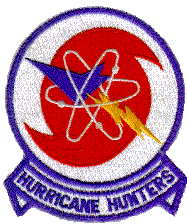Hurricane Irene has dominated the news on the US East Coast for the past week, and I was among those trapped (though not harmed) by her passing in New York City. Of all the different story angles told about Irene, the most intriguing has to be the story of the researchers who risk their lives to fly in and around major storms. Using a Gulfstream jet or P3 prop, the intrepid scientists of the NOAA's Hurricane Hunters fly sorties from MacDill AFB in Tampa in and around hurricanes to get accurate measurements for weather reporting and future storm prediction. Their work has fascinated me ever since I was a little plane-loving kid, watching storms on the evening news.
The bravery of the men and women at NOAA and their sister USAF detachment in Biloxi are extraordinary; their work is challenging, risky and incredibly important. But while the heart of the endeavor is driven by people, software and airplanes, one of the unsung heroes of the Hurricane Hunters -- and our understanding of devastating storms -- is Gamification.
Gamification, or the use of game thinking and game mechanics to engage audiences and solve problems, is a hot topic. In fields as diverse as marketing/advertising, healthcare, education, finance and government, gamification is transforming the way we interact with customers, employees and ourselves. As a meme, it's been hitting its stride only since 2010, and is the subject of a number of books, popular videos and even a major upcoming conference -- Gamification Summit (September 15-16) -- of which I am the chairperson.
While Gamification in its current form may be new, the concept of using game ideas to engage people is anything but -- and one of the most prolific users of gamification throughout the ages is the military. Looking back at early "war games" through successful projects like America's Army, it becomes obvious that the military is on the leading edge of game techniques. The Hurricane Hunters are no exception, using core game mechanics such as badges and leaderboards to their advantage.

Hurricane Hunter researchers fly sorties into storms during the storm season. Each "breach" of an eye wall is considered one "storm ride" and is meticulously tracked by the Hunters and the NOAA, according to a report on PRI. Although some tension exists between the researchers and the scientists about the counting mechanism (an entry and exit is only counted as one storm ride), a leaderboard is used to count and compare flights. Certain large milestones -- like 100 eyewall penetrations -- earn a special patch.
Unsurprisingly, the patches and leaderboard are significant to researchers and their sense of accomplishment. In other branches of the military -- as in civilian life -- the status symbols of your job (e.g. badges) and comparative charts (e.g. leaderboards) can be powerful parts of a motivational system. This is especially true when the financials are either highly standardized -- as they are in the military -- or highly private, as they are in most private corporations. Moreover, a well-aligned status system, like the storm flight tracker for the Hurricane Hunters, allows researchers who love the thrill of the flight to aspire to the next level of accomplishment without great institutional cost, such as title inflation.
Acquiring great talent, maximizing performance and retaining the best of the best is a common challenge for all organizations. And while the military and government have unique considerations, the story of gamification and the Hurricane Hunters really isn't that different from the astonishing successes experienced by companies like NextJump, Target or Google when deploying these techniques internally. This "enterprise gamification" movement amplifies and accelerates the trend of corporations towards more meaningful work, filled with feedback, emotional rewards and personal achievement aligned with group objectives.
We've asked the NOAA to comment and/or supply some additional data about what's worked and what hasn't for the Hurricane Hunters, but they're understandably busy during the storm season. As we get more data, we'll be sure to update this article and share it with you.
If the organization you work for has embraced gamification, your work life is almost certainly more engaging than it was just a short time ago. And while we can't all hunt hurricanes for a living, flying (blind) into the eye of a storm probably describes how you've felt about your job more than once. With lessons from gamification pioneers -- and a little effort -- there's no telling what fun we can have -- in or out of a plane.
